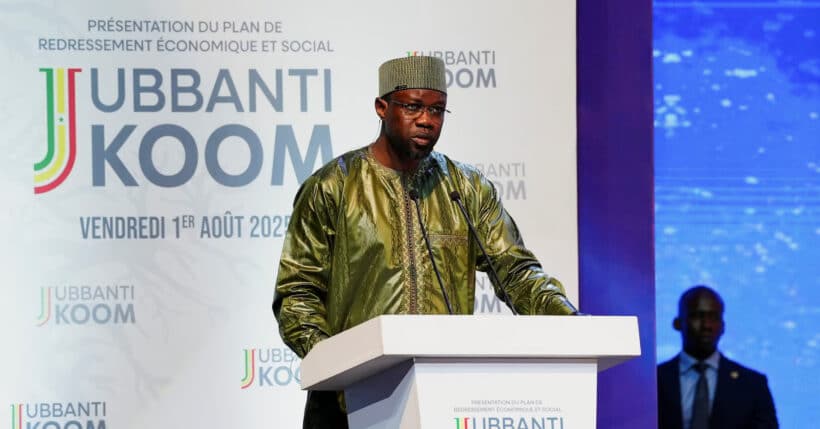Market News
Senegal’s bonds plunge as PM resists IMF restructuring demand - REUTERS
by Marc Jones, Duncan Miriri and Bate Felix
Key Points
- Senegal’s bonds dive after PM’s IMF restructuring warning
- IMF mission ends without new lending agreement
- Analysts say resistance to restructuring limits policy options
Nov 10 (Reuters) – Senegal’s bonds fell sharply on Monday after the country’s prime minister, Ousmane Sonko, said at the weekend that the International Monetary Fund wanted the country to restructure its debt but that the government opposed the idea.
Senegal’s euro-denominated 2028 bond slumped more than 6 cents to under 77 cents in early trading, Tradeweb data showed, while its 2031 dollar-denominated bond fell more than 5 cents to 71 cents on the dollar.
The IMF completed a mission to Senegal last week without agreeing a new lending programme. It froze its previous $1.8 billion programme last year after its then leaders disclosed hidden debts now estimated at more than $11 billion.
The IMF is proposing a restructuring of “this abysmal debt that Macky Sall’s party has burdened us with,” Sonko told a rally in Dakar referring to the previous president.
He added, however, that the government does not want to do so as “it would be a disgrace for Senegal.”
The IMF did not immediately respond to a request for comment.
Analysts say the standoff could hamper efforts to secure new IMF support and stabilise a debt burden estimated by the Fund to stand at 132% of GDP including money also owed by state-owned firms and domestic arrears.
“The government’s resistance to restructuring limits the available policy choices,” analysts at Oxford Economics said in a research note.
If the losses on the 2028 and 2031 bonds hold through the session, they will be the biggest one-day drops on record for both according to LSEG data.
Senegal’s government is counting on revenue from new taxes on gambling and mobile transfers, and on the phasing out of tax exemptions, to bring its fiscal gap into more sustainable territory, but the IMF has expressed scepticism over the plan.
“Progress in the coming months will likely hinge on whether the authorities can present a credible medium-term fiscal framework that satisfies the IMF without resorting to restructuring,” Oxford Economics said.










